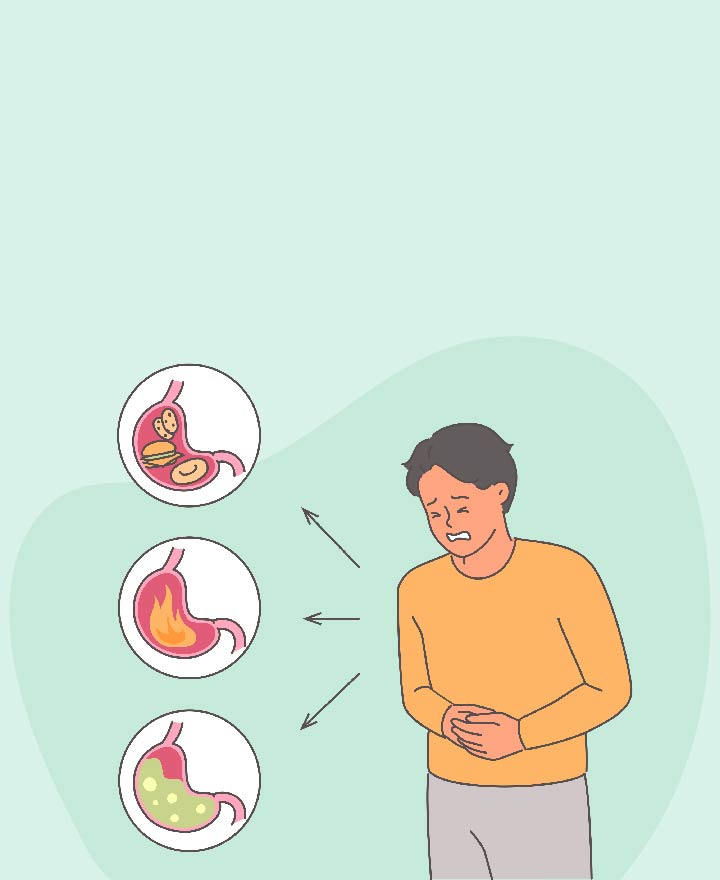

Viral Gastroenteritis: Causes, Symptoms, and Prevention
Viral gastroenteritis, commonly known as the stomach flu, is a widespread infection that targets the stomach and intestines. It is an extremely contagious infection that affects millions of people each year. While most people recover in a few days, young children, older adults and those with weak immunity are more at risk. Take a look at this article to learn about this condition in detail.
What Is Viral Gastroenteritis?
Viral gastroenteritis, often referred to as the “stomach flu” (though it’s not caused by the influenza virus), is an infection of the intestines caused by a virus. It leads to inflammation of the stomach and intestines and results in symptoms.
Common Symptoms
The stomach infection symptoms usually appear one to three days after you are exposed to the virus. They can vary, but most people experience:
• Watery diarrhoea
• Nausea or vomiting
• Stomach pain or cramps
• Headache
• Low-grade fever
• Tiredness or weakness
• Weight loss
• Chills, clammy skin or sweating
These symptoms can last from one to three days, but sometimes longer, depending on the virus and your body’s response.
Causes
Viral gastroenteritis is caused by different viruses that infect your stomach and intestines. These viruses spread easily through contaminated food, water or close contact with someone who is sick. Here are the most common ones:
• Norovirus:
This is the main cause of stomach flu in adults. It’s very contagious and can survive on surfaces for a long time, making it hard to get rid of completely.
• Rotavirus:
This virus mostly affects babies and young children. Most kids get it before the age of three. Adults usually don’t get sick from it because they have already developed immunity. A vaccine is now available to protect young children.
• Astrovirus:
This virus mostly affects children under three years old, especially in daycare settings. It can also spread in places like nursing homes.
• Adenovirus:
This virus usually causes colds, but it can also infect the stomach if swallowed. It can affect people of all ages.
Who Is at Risk?
Viral gastroenteritis can affect anyone, but some people are more likely to catch it or experience stronger symptoms. These groups need to be extra cautious:
• Young children:
Their immune systems are still developing, which makes them more vulnerable to infections. They can also get dehydrated quickly due to diarrhoea and vomiting.
• Older adults:
As people age, their immune response weakens. This makes it harder for their bodies to fight off infections, and the risk of complications like dehydration is higher.
• People with weak immune systems:
Individuals with health conditions like cancer, HIV or those taking immune-suppressing medicines are at greater risk. Their bodies may struggle to clear the virus, leading to more serious illness.
• Those living in crowded or shared spaces:
Places like schools, dormitories, hostels and care homes make it easier for the virus to spread from person to person due to close contact and shared facilities.
• Caregivers or healthcare workers:
Being in regular contact with sick individuals increases the chances of picking up the virus, especially if proper hygiene isn’t followed.
Possible Complications
Most people recover without any serious problems, but dehydration can be a concern, especially in children and the elderly. Watch out for signs like dry mouth or tongue, extreme thirst, little or no urination and dizziness or feeling light-headed. If dehydration gets worse, medical help may be needed.
Ways to Prevent It
You can lower your chances of getting stomach flu by following some simple steps:
• Wash your hands often:
Always use soap and water, especially after using the bathroom and before meals.
• Avoid sharing food or utensils:
Don’t share the same plate, glass or cutlery with someone who is sick.
• Disinfect surfaces:
Clean kitchen counters, doorknobs and bathroom areas often.
• Stay home if you are sick:
Give your body time to recover and avoid spreading the virus to others.
• Vaccinate children:
There is a vaccine for rotavirus that can help protect young kids.
Conclusion
Viral gastroenteritis is a common and often short-term illness, but its symptoms, such as diarrhoea, vomiting, stomach pain and fever, can be quite draining. There’s no specific cure, so staying hydrated, resting and practising good hygiene are key to recovery and prevention. Those at higher risk should monitor their condition closely to avoid complications like dehydration. Taking simple precautions and being prepared can help you stay protected and recover faster.
One of the important components of our overall wellness is also being financially secured. Healthcare emergencies can happen any time, but a good health insurance policy can protect you from such uncertain situations. To know more about Wellness and other health related tips, visit the wellness corner.
Sources: mayoclinic.org, clevelandclinic.org, medlineplus.gov, hopkinsmedicine.org
Disclaimer: This blog provides general information and discussions about health and related subjects. The information and other content provided in this blog, website or any linked materials are not intended and should not be considered or used as a substitute for medical advice, diagnosis or treatment. Kindly contact your doctor before starting a new medicine or health regime.
Related Articles
Published on July 8, 2025















 Health Insurance
Health Insurance  Travel Insurance
Travel Insurance  Car Insurance
Car Insurance  Cyber Insurance
Cyber Insurance  Critical Illness Insurance
Critical Illness Insurance
 Pet Insurance
Pet Insurance
 Bike/Two Wheeler Insurance
Bike/Two Wheeler Insurance  Home Insurance
Home Insurance  Third Party Vehicle Ins.
Third Party Vehicle Ins.  Tractor Insurance
Tractor Insurance  Goods Carrying Vehicle Ins.
Goods Carrying Vehicle Ins.  Passenger Carrying Vehicle Ins.
Passenger Carrying Vehicle Ins.  Compulsory Personal Accident Insurance
Compulsory Personal Accident Insurance  Travel Insurance
Travel Insurance  Rural
Rural